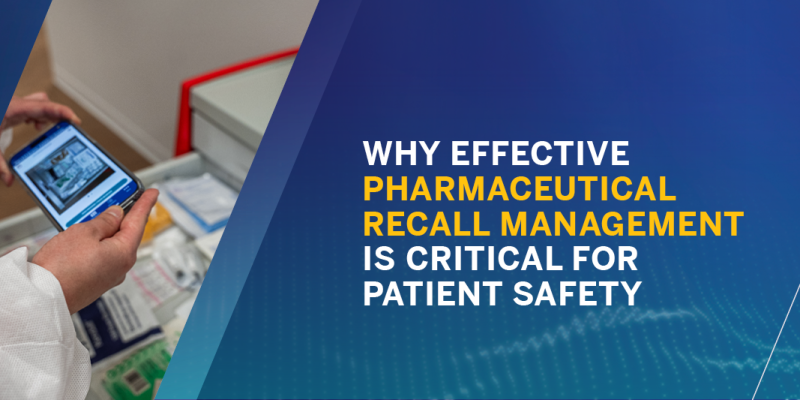
In the pharmaceutical industry, patient safety isn’t just a goal—it’s a responsibility. When medications are found to be unsafe or compromised, companies must act quickly to prevent harm. In these moments, recall management becomes one of the most important safeguards a pharmaceutical company can deploy. A swift, well-coordinated recall not only protects patients but also upholds regulatory compliance and public trust.
At the heart of any successful recall is the ability to minimize exposure to harmful products. Rapid identification and removal of affected medications from the market are essential to reducing risk. Every moment counts. Organizations with clear recall procedures and established internal coordination can act decisively, ensuring dangerous products are removed before they reach—or remain in—the hands of patients.
But speed alone isn’t enough. Regulatory compliance is a critical part of recall execution. Agencies like the FDA require companies to follow structured processes, maintain detailed documentation, and communicate clearly throughout the recall. A well-managed recall helps avoid legal consequences and penalties, but more importantly, it demonstrates a company’s commitment to public health and its responsibility as a healthcare provider.
That commitment must also be reflected in how companies communicate. During a recall, stakeholders—from healthcare professionals to patients and regulatory bodies—need timely, transparent information. A structured communication plan ensures consistent messaging across all channels, helping all parties take appropriate action and reducing confusion in already high-stress situations. Clear communication builds credibility and signals accountability.
Equally important is the long-term impact a recall can have on public trust. How a company responds in a crisis speaks volumes about its values. A prompt, professional response can reinforce trust and demonstrate leadership. On the other hand, a poorly executed recall can permanently damage a brand’s reputation, even if the issue itself was unintentional.
For these reasons, recall management should be viewed not as a reactive function, but as a strategic priority. Pharmaceutical companies that invest in recall preparedness—through proactive planning, regular mock recalls, and cross-functional team alignment—are better equipped to protect patients and navigate regulatory demands with confidence.
Ultimately, recall management is about more than compliance. It’s about protecting lives, maintaining trust, and leading with integrity. In an industry where the stakes are so high, being prepared is the most responsible—and most impactful—action a company can take.
